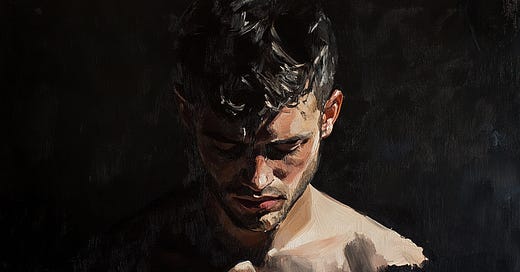Why is the right’s version of masculinity so bad? And why doesn’t the left have any real concept of a good masculinity?
“This election isn’t going to be a referendum on inflation, immigration or foreign policy,” Ross Douthat recently wrote. “It’s going to be a referendum on masculinity in America.”
I mean, yes. The GOP is certainly leaning into a gender ideology of baby-faced, soft-bodied men castigating unmarried, childless women for the societal problems their party created and inviting Hulk Hogan to address the RNC.
On the Democratic side, pundits are praising Coach Walz and first dude candidate Doug Emhoff for representing a new, better masculinity. No one seems curious about how that differs from a well-established femininity.
I agree with Douthat that gender matters for this election.
The average swing voter pays less attention to politics and knows less about politics than the general public (who also know very little). Gender is much easier for the people who will choose our next president (and everyone else) to at least *feel* informed and have opinions about than how best to achieve a soft landing.
Plus, the electorate is increasingly split by gender. Women vote for Democrats and men for Republicans. A person’s *views* on gender are an even better signal for how they will vote than whether they’re male or female, according to Vanderbilt University political scientist John Sides.
What this means, most importantly, is that my time — as someone who writes about gender, politics, and when and where they intersect — has clearly come.
It also means that Democrats will need their own answers to questions around gender in order to win swing voters. So far, the answer has been “We’re the party of being considerably less shitty to women.”
But men vote too. Which has men like Douthat, Freddie de Boer, Richard Reeves, and Derek Thompson asking what Democrats (and the left) have to offer when it comes to a healthy masculinity to counter the right’s toxic formulation.
I’ve finally read enough about this question to ask a better question.
Like, why?
Why do we need masculinity at all? And why would we need it any more than we need new or old visions of femininity? Is there any coherent, differentiated conception of masculinity that does not rest on and reify a gender hierarchy?
Let’s explore.
Keep reading with a 7-day free trial
Subscribe to Sex and the State to keep reading this post and get 7 days of free access to the full post archives.





